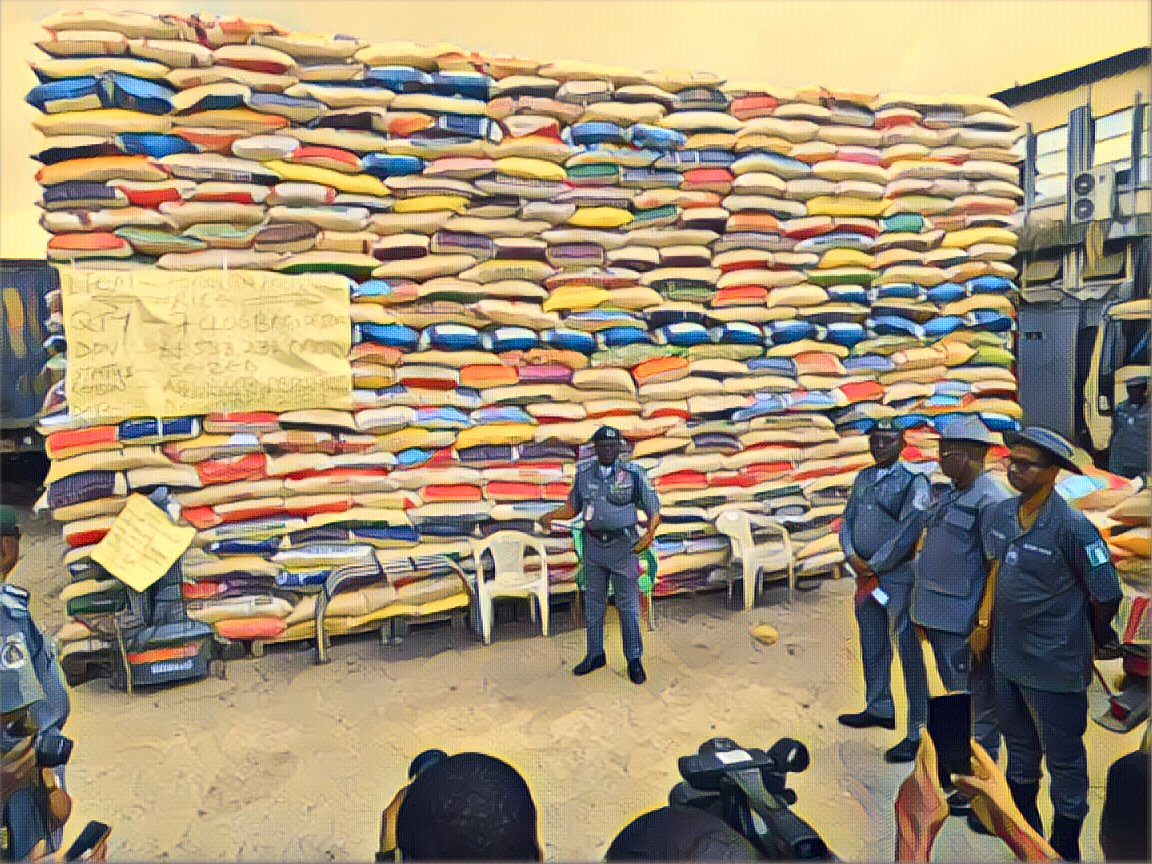The Nigeria Customs Service (NCS) has unveiled a cutting-edge approach to monitor and secure the nation’s borders against illicit trade. As part of a broader government strategy to combat food scarcity and stabilize market prices, the NCS has announced the deployment of drones along with an increase in personnel to oversee approximately 1,500 undocumented border crossings identified as hotspots for smuggling activities.
This initiative, as confirmed by Abdullahi Maiwada, the National Public Relations Officer of the NCS, aligns with the Presidential mandate aimed at curtailing the outflow of essential food items to neighboring countries such as Niger Republic, Chad, and Cameroon. The directive comes in the wake of observations that traders, lured by the prospects of higher profits abroad amidst the depreciating value of the Nigerian naira, have been diverting grains and other staple foods, thus exacerbating the food crisis within Nigeria.
The resultant scarcity and soaring prices of food have led to widespread discontent among the populace, with instances of protests and attacks on food convoys reported in several regions. In response, President Bola Tinubu tasked key security and intelligence agencies to intensify actions against both hoarders and smugglers of food products, emphasizing the need to foster domestic food security over imports as a solution to the ongoing economic challenges.
As part of the enforcement measures, numerous trucks laden with food items destined for cross-border trade have been intercepted and redirected back into the country, signaling a stern commitment to safeguarding the nation’s food reserves. Maiwada elaborated on the technological aspects of this clampdown, highlighting the deployment of drones as a component of the Federal Government’s Trade Modernisation Project (TMP). This project, envisaged to span 20 years with a concession agreement, aims at infusing $3.2 billion into enhancing the operational capabilities of the NCS through modern technology, thereby ensuring more efficient border management and revenue collection for the government.
The TMP is expected to furnish the NCS with advanced scanning systems, software solutions, and other necessary technological tools to facilitate the smooth and effective monitoring of trade movements at ports and borders. This move is anticipated not only to curb the smuggling of food items but also to streamline trade processes, making them more transparent and efficient.
In terms of manpower, the NCS has been on a recruitment drive, bolstering its ranks with over 2,000 officers since 2019 to enhance its presence and operational effectiveness in managing border areas. This reinforcement, coupled with the technological upgrades under the TMP, underscores a comprehensive approach to border security and trade facilitation.
The deployment of Non-intrusive Inspection Technology (NIT), including digital X-ray systems and vibration monitoring tools, is set to revolutionize border checks, allowing for a more thorough yet expedient examination of goods without hampering the flow of legitimate trade. These measures are poised to significantly mitigate the risks associated with food smuggling and contribute to the stabilization of food prices within the domestic market.
In the backdrop of these developments, regional leaders, such as Edo State Governor Godwin Obaseki, have also voiced their commitment to addressing the challenges of food scarcity. By advocating for collaboration among all stakeholders, there is a concerted effort to devise sustainable solutions to the price surges that impact the welfare of the populace.


